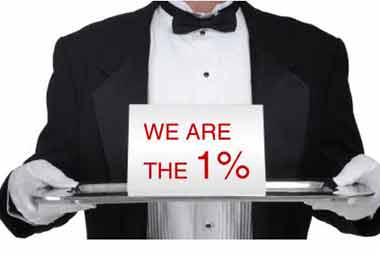Activists from around the world will defy the terrorists to attend the World Social Forum in Tunis on March 25, determined to make the occasion a beacon for free speech, justice and equality. I am proud to join the leaders of Greenpeace, ActionAid, Civicus and the Association for Women’s Rights in Development (AWID) in highlighting the urgent need to tackle the vested interests of the 1 percent, in order to build a better world for all of humanity.
If you are in the top 1 percent of the global wealth stakes, our economic system works exceptionally well. Since the financial crisis in 2008, most of the wealth created in the world has ended up in your bank accounts. By next year, you could own more wealth than the rest of the world put together.
This is not just a global phenomenon. The growing gap between rich and poor is a reality for seven out of ten people on the planet. Last week the World Bank calculated that ten Africans own more wealth than half the continent. Statistics like these are actually a cold shower on people’s natural, positive aspirations to improve their lot – they’re telling us the 99 percent won’t get there, or anywhere close.
Wealth is used to entrench inequality, not to trickle down and solve it. Our research shows how pharmaceutical and financial lobbyists spend hundreds of millions of dollars to influence government legislation in their industries’ favour, saving them billions of dollars, for instance by securing the banks’ huge state bailouts. Across the world, we see that great money doesn’t only buy a nice car or a better education or healthcare. It can buy power: impunity from justice; an election; a pliant media; favourable laws. With the privatisation of our universities it can even buy the world of ideas.
There will be no victory in the fight against poverty unless this trend of worsening inequality is reversed. This is recognised by figures as diverse as the Managing Director of the IMF and the Pope. But we cannot win it under the current broken economic system.

